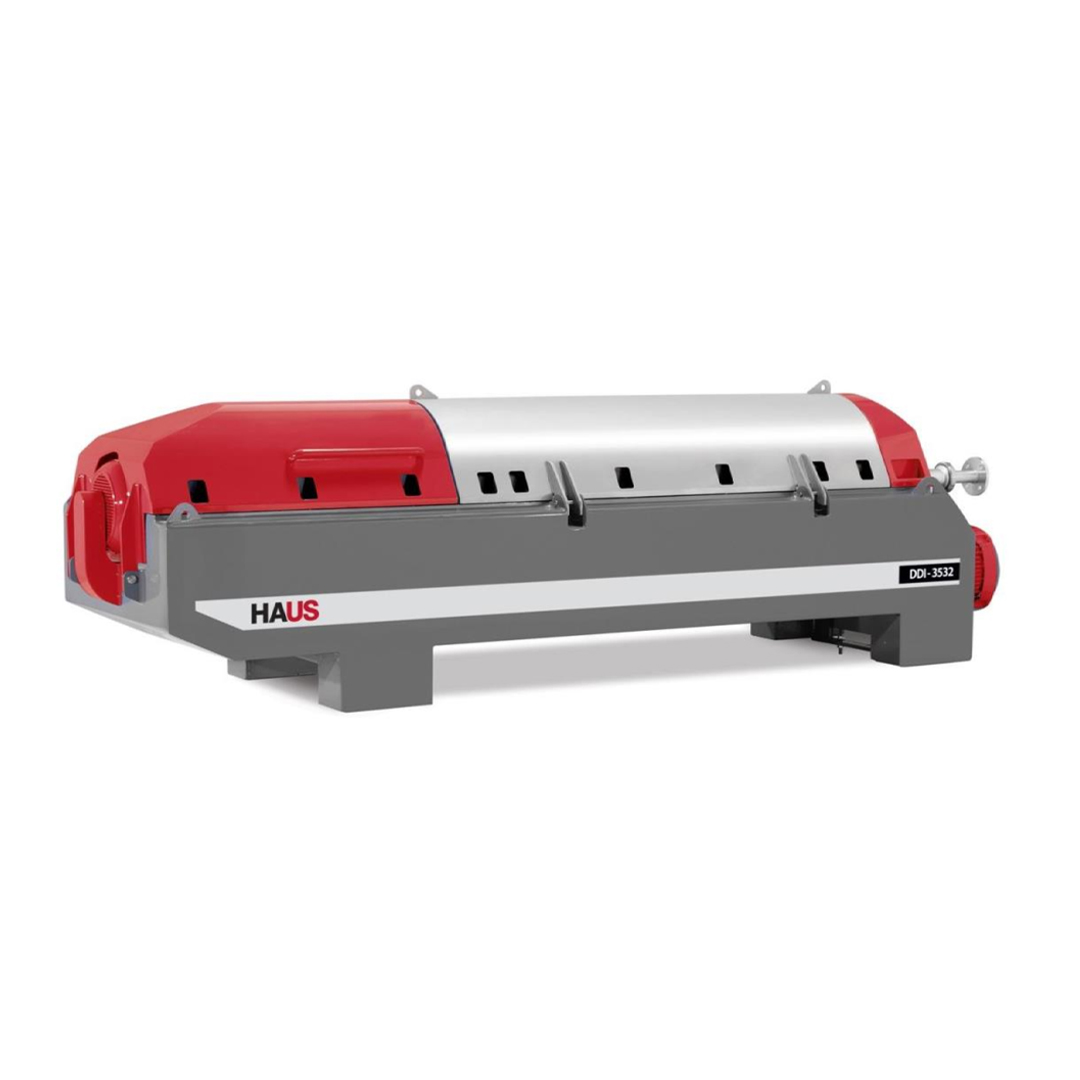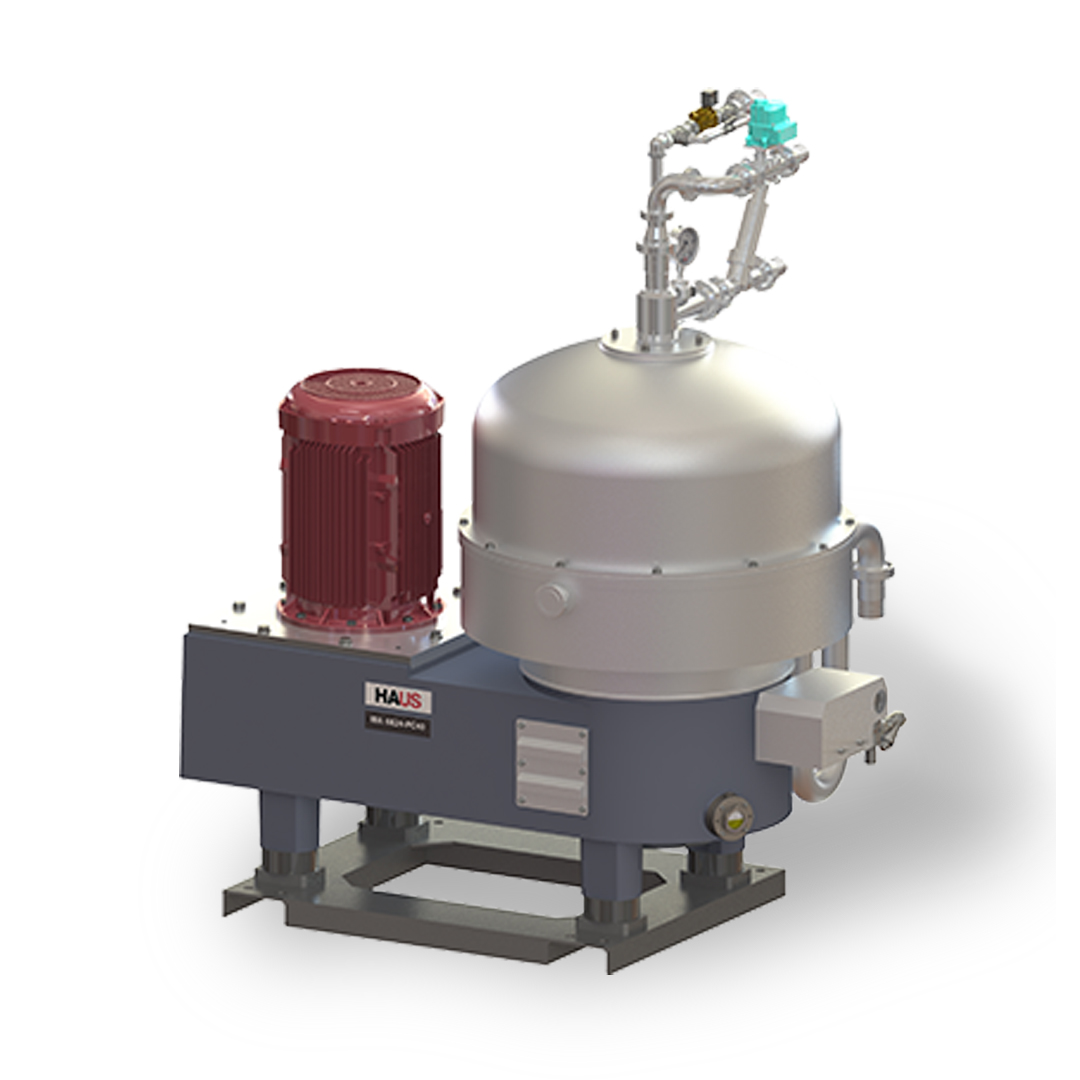DDGS Industry
Ethanol is produced by processing grains (corn, wheat, barley, rye) using the dry grinding method named DDGS which stands for Distiller's Dried Grains with Solubles. In production of ethanol, ethyl alcohol is produced through fermentation of starch (sugar). A byproduct of the process, which is “distilled grain + soluble matters” is feed raw material. Remaining parts of the grains preserve most of the initial nutritional value of the grain including energy, protein and phosphor. Dry grinding plants recover those parts and utilize them as various feed raw materials.
2 types of DDGS production is carried out in the Industry as Dry Production and Wet Production.
In wet production system corn grains are divided into a number of fractions and processed into miscellaneous food byproducts (corn oil, corn flour, gluten, starch, ethanol, fructose syrup).
Ethanol and DDGS are obtained as final products in the dry production process. Decanter centrifuge is used for dehydration of a product which was subjected to ethanol extraction. It is possible to generate energy from the liquid phase by establishing a biogas plant if requested.
Process Operation
Delivered to the distillation towers for separating the alcohol following fermentation, the product is distilled in those towers to extract the alcohol content. Solid - liquid mixture produced upon fermentation is fed to the decanter for dehydration. Solid phase dehydrated in the decanter is then delivered to the drying process. Dehydration process is very important in terms of combustion of grain, change of color, combustion of nutrients and change of their rates. If to be utilized as bovine feed, decanter solid output can be used directly without performing drying process. Drying is required in case of ovine and fish feeds. DDGS product to be stored shall be stored below %15 humidity rate. Wet DDGS will produce mold after a certain period.
Ethanol is produced by processing grains (corn, wheat, barley, rye) using the dry grinding method named DDGS which stands for Distiller's Dried Grains with Solubles. In production of ethanol, ethyl alcohol is produced through fermentation of starch (sugar). A byproduct of the process, which is “distilled grain + soluble matters” is feed raw material. Remaining parts of the grains preserve most of the initial nutritional value of the grain including energy, protein and phosphor. Dry grinding plants recover those parts and utilize them as various feed raw materials.
2 types of DDGS production is carried out in the Industry as Dry Production and Wet Production.
In wet production system corn grains are divided into a number of fractions and processed into miscellaneous food byproducts (corn oil, corn flour, gluten, starch, ethanol, fructose syrup).
Ethanol and DDGS are obtained as final products in the dry production process. Decanter centrifuge is used for dehydration of a product which was subjected to ethanol extraction. It is possible to generate energy from the liquid phase by establishing a biogas plant if requested.
Process Operation
Delivered to the distillation towers for separating the alcohol following fermentation, the product is distilled in those towers to extract the alcohol content. Solid - liquid mixture produced upon fermentation is fed to the decanter for dehydration. Solid phase dehydrated in the decanter is then delivered to the drying process. Dehydration process is very important in terms of combustion of grain, change of color, combustion of nutrients and change of their rates. If to be utilized as bovine feed, decanter solid output can be used directly without performing drying process. Drying is required in case of ovine and fish feeds. DDGS product to be stored shall be stored below %15 humidity rate. Wet DDGS will produce mold after a certain period.

PRODUCTS OF THE APPLICATION
You May Also Be Interested
HAUS
How Can We Help You?
#BECAUSEWECARE









